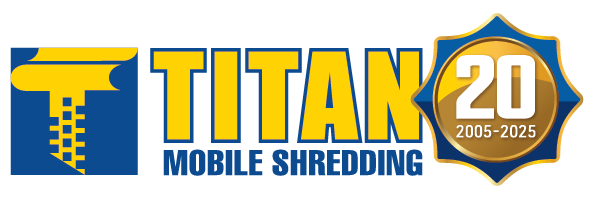Learn Smart Ways to Eliminate Piles of Paperwork
When it comes to document management, both business owners and individuals have to deal with an ever-increasing pile of paperwork and digital files. Whether you are a systematic, sticky-note-loving, neat freak who files every piece of paper, or you thrive on chaos and love a desk full of scattered paperwork, at some point or another you will ask yourself the same questions.
- What records should I hold on to for the next several years?
- Are there certain documents that I can scan and digitize, so that I can let go of the hard copies?
- Which papers can I shred right away, and which digital files can I permanently delete?
The dilemma of what to keep, scan or shred has no easy answers. A lot depends on what business or industry you operate in, and whether there are any laws that require you to hold on to specific files or documents. However, there are certain records that are easy to classify under ‘save’ or ‘shred’, irrespective of the regulatory and professional demands. Read on to know how that demarcation is possible.
Suggestions for Efficient Organization of your Paperwork and Digital Files
Here are some suggestions to help eliminate unnecessary paper and keep your space clutter-free.
- Shred Right Away: Some of the documents that can make their way directly to the shredding pile are your junk mail, food bills, store receipts (excluding warranties or proofs of purchase), holiday cards and envelopes and labels of packages that you receive. Don’t miss the cartons that deliver your online shopping items, as they usually have your personal information glued to the outside.
- Shred Monthly: Destroy documents, such as your ATM receipts and bank and investment records once the monthly statements are generated. All financial institutions give you the option to opt for online statements, which makes it easy to get rid of the related paperwork.
- Shred Annually: Whether or not to retain the hard copies of your pay stubs is a personal choice. Many people who seek clutter-free workspaces shred their pay stubs after they get their employer tax statements. Moreover, nowadays many employers provide online access to payroll systems so that you can view your old pay stubs and other tax related documents at any time.
- Keep for a Fixed Duration, before Shredding: Retain records related to your loan contracts, car or home repairs, club memberships, rental contracts, service contracts with utility companies, and warranties, until such time as they are valid or active. However, once that period has lapsed, you may want to look at shredding these files as they are no longer relevant. For businesses, there may be state or federal laws that govern record retention timelines. Once the stated time limit for each type of document has lapsed, it should safely make its way to the shredding pile.
- Scan and Digitize: Records related to your taxes, pension or social security are critical documents that you should not only retain in hard copy, but also scan and digitize. The digital records will come in handy if you lose the physical papers to theft, natural calamities, or other mishaps.
- Save Indefinitely: As businesses or individuals, there are some documents that you should retain forever. These include your asset ownership records, titles and deeds, estate and mortgage documents, state-issued identities and certificates, employment records, investment and pension documents, and health and medical records. In the case of businesses, you may have to hold on to a large number of other corporate documents, including financial statements, audit reports, retirement records, cash books, deeds, bills of sale, trademarks or patent registrations, legal records, and more.
Since there cannot be an exhaustive list or guideline, each time you are unsure of what to keep, save or shred, ask yourself:
- Am I likely to be in any financial or legal trouble due to the unavailability of this document?
- Will it be difficult or tedious to retrieve this information, if I don’t hold on to a certain record?
- Will retaining a specific record make it easier for someone else to manage my affairs or estate, in my temporary absence or after my death?
If the answer to any of these questions is a ‘yes’, then you are better off retaining the record forever.
As far as your digital records are concerned, you may be tempted to hold on to everything since they are not paper-based and do not occupy physical space in your home or office. However, if you do decide to get rid of old hard drives, SD cards, SIM cards or thumb drives, be sure to follow a secure media destruction process.
Let the experienced and trusted professionals at TITAN Mobile Shredding address your paper and digital media shredding requirements. As a NAID AAA Certified company, we have the capability to ensure that you are compliant with industry-specific record management norms. Our data destruction professionals meet the highest standards in meticulous and safe disposal of your records.
Call us at (866) 848-2699 today or contact us online to request your free quote.



